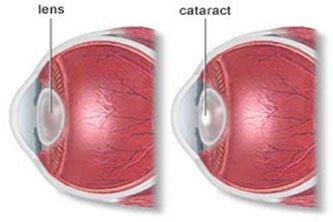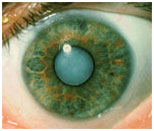|
|
||||||||||||||||||||||||||||||||||||
Disease Conditions
- Abscess
- Acne
- Addiction
- Adenoid Hypertrophy
- Allergic Rhinitis or Hay Fever
- Alopecia Areata
- Alzheimer’s Disease
- Amoebiasis
- Anxiety
- Asthma
- Backache
- Bed-Wetting-Enuresis
- Brain-Tumour
- Cataract
- Cirrhosis of Liver
- Conjunctivitis
- Constipation
- Dengue
- Depression
- Diabetes Mellitus
- Diseases of Prostate
- Eczema
- Epilepsy
- Erectile-Dysfunction
- Gallstones
- Goitre
- Gynaec
- Hepatitis
- Hepatitis-a
- Hepatitis-b
- Hepatitis-e
- Hyperthyroidism
- Hypothyroidism
- IBS - Irritable Bowel Syndrome
- Infertility
- Infertility FAQ
- Male Infertility
- Male Infertility FAQ
- Women Infertility
- Lichen Planus
- Lipoma
- Meningitis
- Menstrual-Disorders
- Migraine
- Molluscum-Contagiosum
- Nasal-Polyps
- Neoplasm
- Nephrotic Syndrome
- Neuralgia
- Osteo Arthritis
- Otitis
- Piles or Hemorrhoids
- Premature-Ejaculation
- Psoriasis
- Rheumatoid Arthritis
- Ringworm
- Schizophrenia
- Sinusitis
- Spondylitis
- Styes
- Tarsal Cyst-Chalazion
- Tonsilitis
- Typhoid
- Urinary-Tract-Infection
- Urticaria
- Vertigo
- Vitiligo
- Warts
Auroh Health Horoscope
Disease A - Z > Cataract > Homeopathic treatment for Cataract
Homeopathy treatment for Cataract
|
||||||||
A cataract is a clouding of the lens, which lies behind the iris and the pupil. The lens works like a camera by focusing the incoming light onto the retina and it also adjusts the eye's focus, letting us see things clearly both up close and far away.
The protein in a lens is arranged in a precise way that keeps the lens clear and let light pass through it. In case of a cataract some of the protein has clumped together and has formed a cloud in a small area of the lens.
Over time, it may grow larger and cloud more of the lens, making it harder to see
It is said that the cause of this cataract is due to changes in the protein structure as we age.
A cortical cataract starts of on the outside of the lens and slowly extends to the center. This cataract is common for people with diabetics.
 |
 |
lens and cataract |
cortical cataract |
A sub capsular cataract begins at the back of the lens. People who have a higher risk of developing this form of cataract are: people with diabetes, high farsightedness, retinitis pigments or those taking high doses of steroids
The term "age-related" is a little misleading because people can have an age-related cataract in their 40s and 50s. But during middle age, most cataracts are small and do not affect vision. It is after age 60 that most cataracts have a serious impact on ones vision
What are the symptoms
Each type of cataract has its own symptoms. With a nuclear cataract you may notice an improvement in your near vision. This is called 'second sight'. However when the cataract gets worse this will disappear.
A sub capsular cataract may not give any symptoms in the beginning, but only in a later stage when it is more developed.
The most common symptoms of a cataract are
- Cloudy or blurry vision
- Colors seem faded
- Glare. Headlights, lamps, or sunlight may appear too bright. A halo may appear around lights
- Poor night vision
- Double vision or multiple images in one eye. (This symptom may clear as the cataract gets larger.)
- Frequent prescription changes in your eyeglasses or contact lenses
- These symptoms also can be a sign of other eye problems. If you have any of these symptoms, check with your eye care professional
When a cataract is small you will not notice it much. You may find that your vision is a little blurry, like looking through a cloudy piece of glass. Cataracts tend to "grow" slowly, so vision gets worse gradually. Over time, the cloudy area in the lens may get larger, and the cataract may increase in size. Seeing may become more difficult
Another way that cataracts can affect your vision is that the clear lens slowly changes to a yellowish/brownish color, adding a brownish tint to vision
At first, the amount of tinting may be small and may not cause a vision problem. Over time, increased tinting may make it more difficult to read and perform other routine activities. This gradual change in the amount of tinting does however not affect the sharpness of the image transmitted to the retina
If you have advanced lens discoloration, you may not be able to identify blues and purples. You may be seeing black instead of purple or blue
What causes Cataract
Much research has been done and is still happening to determine what the cause is of cataracts. So far it is unclear why, as we grow older, the protein starts to clump. Of course not everyone experiences having cataracts, so to just write it down to age is not correct
Many studies suggest that exposure to ultraviolet light is associated with the development of cataracts. This is one of the reasons why many eye care specialists recommend wearing sunglasses and a wide brimmed hat. A 2005 study conducted in Iceland suggests that airline pilots have a higher risk of developing nuclear cataract than non-pilots, and that the cause may be exposure to cosmic radiation. A similar theory suggests that astronauts, too, are at risk from cosmic radiation.
It has also been suggested that people with diabetes or people who use steroids, diuretics and major tranquilizers are at risk for developing a cataract
Other risk factors are: cigarette smoke, air pollution and heavy alcohol consumption. Several studies found lead exposure to be a risk factor. However this research was not extensive enough to determine whether lead can definitely put you at risk, and if so, whether the risk is from a one-time dose at a particular time in life or from chronic exposure over years
How is Cataract diagnosed
By doing a comprehensive eye examination, an ophthalmologist can diagnose a cataract and monitor its development
- A comprehensive eye examination usually includes
- Visual acuity test: This is an eye chart test where the doctor will ask the individual to read a letter chart to see how sharp your sight is at various distances
- Pupil dilation : In this test, the pupil (the round black centre of your eye) is widened with eye drops to allow the doctor to see more of the lens and retina and look for other eye problems.
Other eye tests - Glare test
- Contrast sensitivity test
How can a Cataract treated
When symptoms begin to appear, you may be able to improve your vision for a while using new glasses, strong bifocals, magnification, appropriate lighting or other visual aids
We advocate natural means to treat and forestall cataracts
A diet high in antioxidants, such as beta-carotene (vitamin A), selenium and vitamins C and E, may forestall cataract development. Meanwhile, eating a lot of salt may increase your risk. You should only consider surgery when your cataracts have progressed so far that they seriously impair your vision
Auroh Homeopathic Treatment
homeopathy treats the person as a whole. It means that homeopathic treatment focuses on the patient as a person, as well as his pathological condition. The homeopathic medicines are selected after a full individualizing examination and case-analysis, which includes the medical history of the patient, physical and mental constitution etc.
homeopathy can give benefit if cataract is diagnosed earlier. AUROH scientific studies have been done on this context that proved the efficacy of homeopathy in cataract. Recently, Govt. of India’s Central Council for Research in homeopathy has published the efficacy of CMS eye drops. On the positive side of homeopathy it does not have any side effects. A benefit without surgery will obviously be a boon to all of us.
Auroh Homeopathic medicines help reduce the opacity & thickness of the lenses thereby improving the vision.
homeopathy is recommended for cataract.
| talk to our doctors right now |  |
|
| consult our experts | ||
 |
leave your number we will call you back |
|
| start auroh health treatment |
Your doctor is just a click away |
Treatment |










